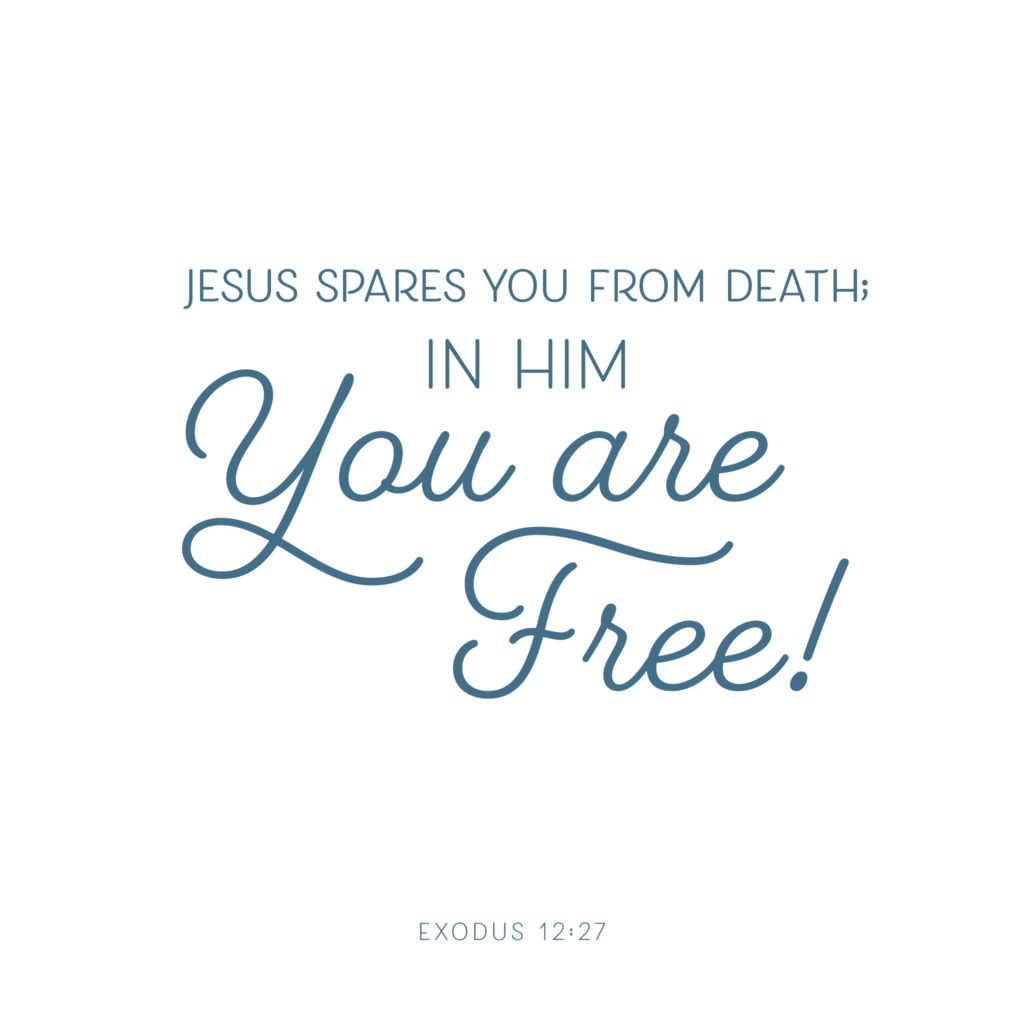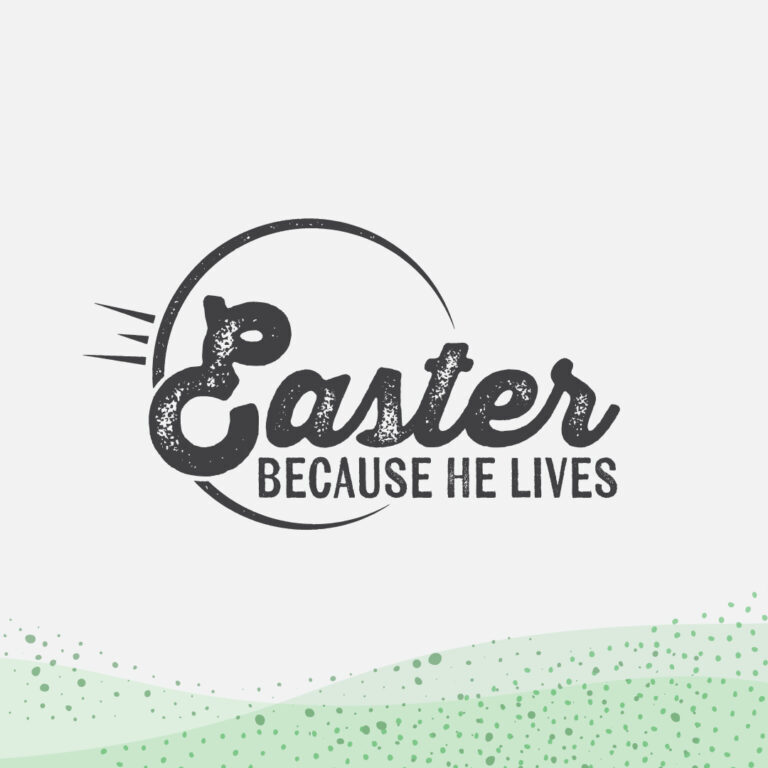April 1, 2021
Pastor Gunnar Ledermann
Exodus 12:14-20, 24-27
Exodus 12:14-20, 24-27
14 “This is a day you are to commemorate; for the generations to come you shall celebrate it as a festival to the Lord—a lasting ordinance. 15 For seven days you are to eat bread made without yeast. On the first day remove the yeast from your houses, for whoever eats anything with yeast in it from the first day through the seventh must be cut off from Israel. 16 On the first day hold a sacred assembly, and another one on the seventh day. Do no work at all on these days, except to prepare food for everyone to eat; that is all you may do.
17 “Celebrate the Festival of Unleavened Bread, because it was on this very day that I brought your divisions out of Egypt. Celebrate this day as a lasting ordinance for the generations to come. 18 In the first month you are to eat bread made without yeast, from the evening of the fourteenth day until the evening of the twenty-first day. 19 For seven days no yeast is to be found in your houses. And anyone, whether foreigner or native-born, who eats anything with yeast in it must be cut off from the community of Israel. 20 Eat nothing made with yeast. Wherever you live, you must eat unleavened bread.”
24 “Obey these instructions as a lasting ordinance for you and your descendants. 25 When you enter the land that the Lord will give you as he promised, observe this ceremony. 26 And when your children ask you, ‘What does this ceremony mean to you?’ 27 then tell them, ‘It is the Passover sacrifice to the Lord, who passed over the houses of the Israelites in Egypt and spared our homes when he struck down the Egyptians.’” Then the people bowed down and worshiped.
Walking through the red doors of the church this evening was a special event. Often, we go through the side door to enter church because this old building shifts and the big red doors are hard to open. Plus, they let out the heat in the winter and the cool in the summer. This evening though, we all walked through the red doors to remind us of something.
Before we get to what the red doors remind us of, let’s talk about what red doors would have meant to an Israelite. The Israelites were the people of God in the Old Testament. They are known as God’s people because the only reason they exist was because of a promise God made to a man named Abraham. When Abraham and his wife Sarah, who had no children, were far too old to have kids, God told Abraham he would become the father of an entire nation. And miraculously Abraham and Sarah finally conceived and gave birth to a son named Isaac. Isaac then had a son named Jacob, who God renamed Israel. And Jacob had 12 sons, all of which moved to Egypt during a famine, where they and their descendants stayed for 430 years turning into a nation of millions of people. They came to Egypt free, but over time, they were enslaved. Over those hundreds of years, you can imagine that the people struggled to keep their hope in the promise God made to Abraham because, on the one hand, God had kept his promised to make his descendants into a huge nation, but on the other hand, they were living as slaves without their own homeland and without freedom.
This brings us to what the red doors would have meant to Israel. God had not forgotten his promise but came to the rescue of his people. Since Israel was in slavery, they had no army or weapons to fight for their freedom. Instead, God told the people through the prophet Moses that he would fight to free his people. So, God launched ten separate attacks on Egypt, which are commonly referred to as the 10 plagues. God turned the Nile river into blood, sent frogs, flies and locusts against the people and infected them with boils on their skin just to name a few of the plagues. God’s warfare was miraculous and terrible, but the Pharaoh of Egypt would not budge until the final plague. With the last plague, God promised to put to death the first-born son of all the people in Egypt from Pharaoh to the servants, and even the first born of the cattle in one night. With this plague, God promised Israel that they would be spared by sacrificing a lamb and spreading its blood on the door posts and lintels of their homes because when God saw the blood, he would pass over their homes. It was this plague that broke Pharaoh so that he allowed Israel to go free. So, walking through a large set of red doors or more specifically the red door frames meant freedom to an Old Testament Israelite.
God wanted Israel to remember the freedom he had won for them, so he gave them the Passover. Beyond the red door frames, God also gave the Israelites a meal and a week-long festival to remember it was his promise and power that made them a people and freed them from their slavery. In Exodus 12, God gave these instructions as for the Passover, 15 “For seven days you are to eat bread made without yeast. On the first day remove the yeast from your houses, for whoever eats anything with yeast in it from the first day through the seventh must be cut off from Israel.” It may seem odd that God would ask the Israelites to remove yeast from their homes and eat bread made without yeast, but throughout the Bible, yeast represents sin which you do not want in your life and when Israel left Egypt in haste after the firstborns died during the night their bread did not have yeast in it.
God had specific instructions for the Passover that made it a meal only for the people of Israel and if its instructions were not kept, it removed someone from the people. The freedom that God won for the people was life changing, and so this meal was to be a major part of their worship to God. And God wanted this festival to continue for the people as we hear later in Exodus 12, 26 “And when your children ask you, ‘What does this ceremony mean to you?’ 27 then tell them, ‘It is the Passover sacrifice to the Lord, who passed over the houses of the Israelites in Egypt and spared our homes when he struck down the Egyptians.’” This festival of the Passover was a weeklong reminder for God’s people that he kept his promise to save them by giving them their freedom.
As New Testament believers, we are not required to keep the Passover festival, but we are still here tonight remembering the night Jesus celebrated the Passover with his disciples. As the disciples ate their last meal with Jesus, their sinfulness was evident as an argument broke out amongst them as to who was the greatest. It was the yeast of sin that had puffed them up like dough rising in a bowl. Then, Jesus poked their yeast filled hearts and deflated them explaining how the greatest is the one who serves the needs of others and loves, not the one who gets the most likes, approval or following. Jesus was the greatest among them, that was the truth they needed to hold onto. Tonight, we are here to face the truth that our lives are filled with yeast, which is sin.
Your heart is puffed up with yeast, which is sin that condemns you to death and hell. Paul wrote in 1 Corinthians 5, 7 “Get rid of the old yeast, so that you may be a new unleavened batch—as you really are. For Christ, our Passover lamb, has been sacrificed. 8 Therefore let us keep the Festival, not with the old bread leavened with malice and wickedness, but with the unleavened bread of sincerity and truth.” The yeast in your life keeps you from being free. Like the disciples, our sense of identity is often our downfall when it comes to our sinfulness. Each of us is tempted to find our identity in our job, social media, relationships, parenting style, political party, level of education, social circles, home size, vehicle brand, etc. Our sinful nature leads us around in handcuffs at the mercy of what others think about us and how much we think of ourselves as if that was what makes us good, right, content and even on the right track to heaven, but none of that is your identity. Falling into the trap of thinking you are a good person leads to malice and wickedness, to pride and separation from God. The only thing that takes away all the yeast, all the sin and all the slavery to sin is Jesus. In Hebrews 9, we read, 22 “In fact, the law requires that nearly everything be cleansed with blood, and without the shedding of blood there is no forgiveness.” Since your body and soul are filled with sin, the only way to get rid of it completely is death, but if you die, then you are dead. And God does not want you dead, just your sins, so Jesus shed his blood and died on the cross for your sins. He gave his yeast-less, sinless life in trade for yours. Now you have forgiveness, life and a new identity in him. In other words, you are free.
In your freedom, the truth to remember is that yeast puffs up, but faith builds up. The Israelites were to celebrate the Passover each year to remind the next generation of the freedom God won for them. Their words were not puffed up hollow boasts about their strength as a people but built on the solid promises kept by God to save his people. You are also a result of God’s promises kept and you have a purpose. In 1 Peter 2, we read, 9 “But you are a chosen people, a royal priesthood, a holy nation, God’s special possession, that you may declare the praises of him who called you out of darkness into his wonderful light.” Your identity is not found in who you are in the eyes of other people or your own personal accomplishments. Your identity is found in Christ. You were lost in darkness, but now you are in the light. Do not go back to yeast and darkness, stay in the light and in freedom. When you are tempted to worry if you are doing the right thing or making people around you happy, stop. In Mark 10, we read 45 “For even the Son of Man did not come to be served, but to serve, and to give his life as a ransom for many.” Jesus served you, he loved you by putting your needs above his own to the point of giving up his life for you. You are now his. Your identity is found in him. So, when you wonder or worry whether you are doing right in your life, there is only one test to find out, “Am I serving God by what I am doing?” This is the freedom that you have in Christ. You only have to worry about what God thinks, and if it is good with him it will be good for those around you. Now, those around you might not like what you do, but that is because they are against God, not you. And if you are wondering how you will know what you are doing serves and shows love for God, read your Bible often.
Walking through the red doors of the church this evening was a special event. This evening we all walked through the red doors to remind us of our freedom. You are free from sin, death and hell through the blood of Jesus. Tonight, we are not eating the Passover meal. Instead, we get to share in the Lord’s Supper, in Holy Communion where eating and drinking Jesus’ body and blood gives us the forgiveness of sins. Tonight, let us give thanks for we see Jesus freeing us. Amen.




